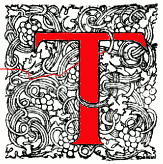A Grand Anti-Popish Processiom, demonstrative of the feeling existing against the Papal Aggression, took place at Eltham, Kent, on Wednesday. An immense figure of the Pope, in full pontificals, and of Cardinal Wiseman, were carried in vans, accompanied by between forty and fifty horsemen. After perambulating the country in the neighbourhood, they burnt the two effigies at Eltham, amidst discharges of rockets and other fireworks, while a band played the National Anthem. — 1850 Illustrated London News

he Ecclestiastical Titles Act of 1851, which marked the last time the British government passed a legislation discriminating against a specific religion, resulted from an odd comedy of errors in which the parties concerned repeatedly acted in ways contrary to their own basic beliefs. The first proposed version of the act, a hostile, unnecessary response to the Pope's reestablishment of Roman Catholic dioceses in Great Britain a few decades after the 1829 Catholic Emancipation Act granted Catholics full civil rights, penalized any Catholic “any archbishop, bishop or dean who assumed a territorial title” with a £100 fine and forfeiture of the diocese’s entire endowment. That draconian punishment was cut from the bill before it became law.
So how and why did such a law come about? As Roy Jenkins points out in his biography of Gladstone, despite a few popular riots against so-called “Papal aggression,” the Prime Minister Lord John Russell wrote to Queen Victoria that “the division into twelve territorial dioceses of the eight ecclesiastical vicariats is not a matter to be alarmed at. The persons to be affected by this change must be already Roman Catholics before it can touch them” (128). The Queen agreed. Unfortunately, as Jenkins points out, the Prime Minister abandoned “his own calm initial reaction” and foolishly attempted to legislate “against the Pope,” but the Pope obviously lay outside the jurisdiction of British law, so any legislation could apply only “to those who obeyed papal instructions on a matter relating to the organization of their religion” (129). Russell found himself in a particularly “unhappy position for a quintessential Whig who had based his whole career on being for liberty and against the pretensions of authority, whether in state or Church.”
Unfortunately, Russell wrote a letter with some incendiary remarks about Catholicism to the Bishop of Durham that became public and stirred up a great row.
From then onwards, for no very clear reason, the whole government became mesmerized with the idea that legislation was inevitable. This was in spite of few ministers being in favour of it. Russell’s letter was deeply disapproved of, inside and outside the government, as being ill-considered and beneath the dignity of a Prime Minister. The Queen disapproved, so did Lansdowne, Lord President and Russell’s closest colleague, so did Clarendon, the President of the Board of Trade, so from outside did John Bright, the moral voice of Nonconformity, who rebuked Russell most mightily for unnecessarily offending eight million of his Catholic countrymen. [131]
According to Jenkins, another great irony in the whole situation that “the immediate reaction of some old English Catholics to the actions of the Pope and of Wiseman was more hostile than was that of the Queen and her Minister. The old Catholics liked a quiet and gentlemanly religion and were already somewhat disturbed with the attention which the new elements in their Church were devoting to populist authoritarianism for Irish labourers on the one hand and to the drama and opulence of new churches for middle-class converts on the other.” The old catholics, in other words, welcomed neither flood of Irish catholics driven to England by the great famine nor the passionate new converts like John Henry Newman. Even Newman, who thought “seminaries and education were more important than sees,” had little enthusiasm for the changes.
One good result of the entire debacle came in Gladstone’s fine speech in defense of religious liberty during parliamentary debate. Attacking the bill, the Grand Old Man asked the Whigs if they were going to betray — and undo — all the past efforts of their party to expand British liberties:
Are you going to spend the second half of the nineteenth century in undoing the great work which with so much pain and difficulty your greatest men have been achieving during the first half... ? Your fathers and yourselves have earned a brilliant character for England. Do not forget it. Do not allow it to be tarnished. Show, if you will, the Pope of Rome that [when] England . . . has once adopted the great principle of legislation which is destined to influence her national character and make her policy for ages to come, and affect the whole nature of her influence among the nations of the world - show that once she has done this slowly, and with hesitation and difficulty, but still deliberately, but once for all — she can no more retrace her steps than the river which bathes this giant city can flow backwards to its source.... We cannot turn back the profound tendencies of the age towards religious liberty. [131]
The law in any case was never enforced, and it was finally repealed a decade later under Gladstone’s leadership.
Bibliography
Jenkins, Roy. Gladstone: A Biography. New York: Random House, 1997.
Last modified 29 April 2018